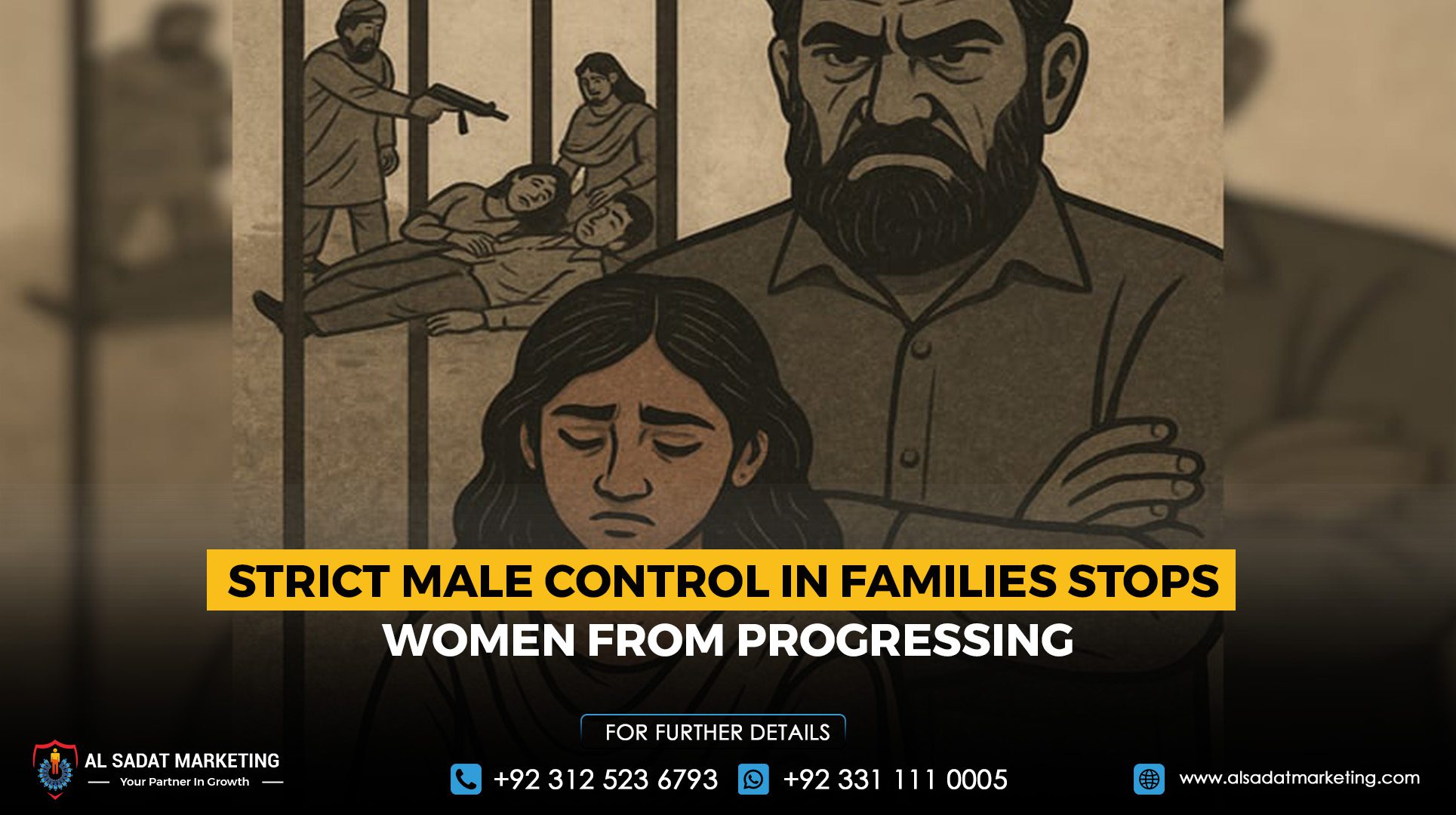Women are so oppressed in Pakistani society today that many view choosing to work or get married as a sign of liberation. Pakistan is the worst country for women, ranking last out of 148 countries in the World Economic Forum’s 2025 Global Gender Gap Report.
Pakistan’s ranking is regularly validated by horrifying news reports of crimes against women. Then, to support the claim, a video of an honor killing in Balochistan appeared. The nation was astonished by the strange video episode, which was widely criticized. According to the video, a Jirga (tribe council) ordered the girl’s brother and others to brutally murder a couple who had allegedly chosen to get married in the name of honor.
This particular incident reveals the common patriarchal dictatorship that defines practically every Pakistani family, as do frequent crimes against women.
Nearly 25 years into the twenty-first century, Pakistani women still do not feel empowered or granted the fundamental rights, much less feel safe even at home. Women’s decisions, both personal and professional, are overridden. They still run the risk of being sexually, psychologically, and physically mistreated by their family patriarchs, even to the point of being killed (in the sake of honor).
A patriarchal dictatorship is characterized by the male heads of the family exercising dictatorial control over the women in particular, denying them their fundamental rights and enjoying complete control over their decisions.
The majority of Pakistani women are denied access to education, despite it being a fundamental right. The country’s female literacy rate is under 49%, with only 30% to 40% of women living in rural regions. About 12 million girls between the ages of 5 and 16 are not attending school in the nation, according to UNICEF. Furthermore, barely 40% of women complete higher education. Because of this, the World Bank reports that women’s labor force participation is only 24%, while the global and South Asian averages are 52.6 and 25.2%, respectively. These startling statistics demonstrate how family chiefs view female education as a challenge to their power.
Even though society makes grand claims about giving women a safe environment, little attention is paid to what occurs to them in their homes. Pakistani women endure terrible traumas, ranging from brutal murders committed in the name of honor to sexual and domestic abuse.
Approximately 90% of women in the nation have been victims of domestic abuse, according to the National Commission for Human Rights. Mostly over little matters like serving cold food, husbands and dads beat women physically, mentally, and emotionally, and sometimes even kill them.
To preserve their power and enhance their egos, some men focus their anger on the women in their homes. The mistreatment of women, which continues after they pass away, is exemplified by cases such as those of Noor Mukadam and Sania Zehra.
Furthermore, love weddings are prohibited in many rural and some metropolitan places. Some women are executed in the name of honor by their family when they leave the house to marry the person of their choice. For the same reasons, a newlywed couple in Karachi were shot dead by the girl’s brother a few months ago. Additionally, a month ago in Rawalpindi, a college student who was suspected of having an affair was killed in the name of honor.
According to data from Pakistan’s Human Rights Commission, 346 women were murdered in 2024 for “honour.” According to certain rights organizations, the nation sees about 1,000 female homicides annually.
However, when a woman is raped by a family member or relative, the honor for which she died appears to diminish. More than 82% of rapists are family members, including fathers, brothers, grandfathers, and uncles, according to the Karachi-based NGO War Against Rape. According to a different HRCP research, 69 percent of reported cases of sexual abuse involved incest. It is unfortunate that the majority of these occurrences remain unreported for various reasons and only come to light when victims seek medical help, such as an abortion.
There is less discussion of this particular problem.
Early and forced marriages are another factor preventing women’s empowerment. Over 19 million child brides reside in Pakistan, where 1 in 6 young women were married when they were still minors, according to UN Women. The girls suffer greatly after marriage as a result of this practice, which robs them of their youth and opportunities. It is also a result of patriarchal rule in families, when the older men choose their daughters’ spouses, ideally within the family, totally ignoring their preferences, compatibility, and chemistry. The repression of women in Pakistan is also influenced by watta-satta (exchange of women), providing women as a reward, raising women indifferently, and being angry when a female is born.
A strong commitment must be made, both individually and collectively, to lift Pakistani women out of this terrible cycle of suffering in light of the current situation. Since women make up over half of Pakistan’s population, the country cannot prosper without their involvement.
If the goal of women’s empowerment is to be accomplished, a significant shift in our mindset and behavior is required. Ensuring our women’s fundamental human and civil rights is the first step toward bringing about that change, which must start at home. In this sense, social, political, and religious leaders, as well as the entirety of civil society, have a significant role to play.
The government and non-governmental organizations must guarantee counseling services and urge women to report the horrors they encounter. While the current centers for women’s facilitation need to be improved, more could be created. To safeguard women in the event of a rights violation, the legal system would also need to be more proactive and responsive. To genuinely empower women, the chains of patriarchal dominance must be removed. Now is the time for the government and society to pull together and rebel against this spreading authoritarian system. Otherwise, women’s empowerment will never become a reality and will always remain a myth.










